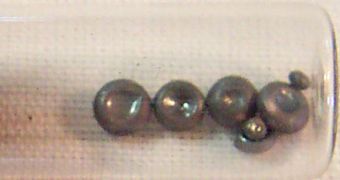New find links the presence of higher amounts of the rare chemical selenium in the human bloodstream to a lower replication rate of the Human Immunodeficiency Virus (HIV), the main cause of the Acquired Immunodeficiency Syndrome (AIDS), a disease for which there is currently no cure. Selenium appears naturally in the body, as selenocysteine, an amino-acid that is incorporated into proteins.
"We have found that increasing the expression of proteins that contain selenium negatively affects the replication of HIV. Our results suggest a reduction in viral replication by at least 10-fold," explained Penn State assistant professor of immunology and molecular toxicology, K. Sandeep Prabhu. "Since HIV targets the selenoproteins, we thought that the logical way to deal with the virus is to increase the expression of such proteins in the body."
The paper, published in the November 28th issue of Journal of Biological Chemistry, says that selenoproteins, containing the amino-acid selenocysteine, are among the first bodily defenses to be attacked by HIV upon infecting a new host. The mechanisms the pathogen employs to do this are still unclear, but researchers worldwide believe that a protein the virus secretes, known as Tat, is responsible for putting so much stress on selenoproteins that they eventually break under the strain.
The researchers at Penn State, working in collaboration with colleagues from the University of Nebraska and Boston University, harvested healthy blood cells from individuals that were not infected with HIV, and artificially added the virus in cultures. In some dishes they also dripped sodium selenite, a compound of selenium, while in others they reduced the expression of selenoproteins.
In the selenium-enhanced cultures, they noticed more than 1000 percent (10-fold) decrease in the speed of viral replication, which led them to hypothesize that artificially adding selenium in existing AIDS therapies could, at the very least, slow the spread of the retrovirus throughout its host. In the second group of cultures, less selenium accelerated the spread by 350 percent.

 14 DAY TRIAL //
14 DAY TRIAL //